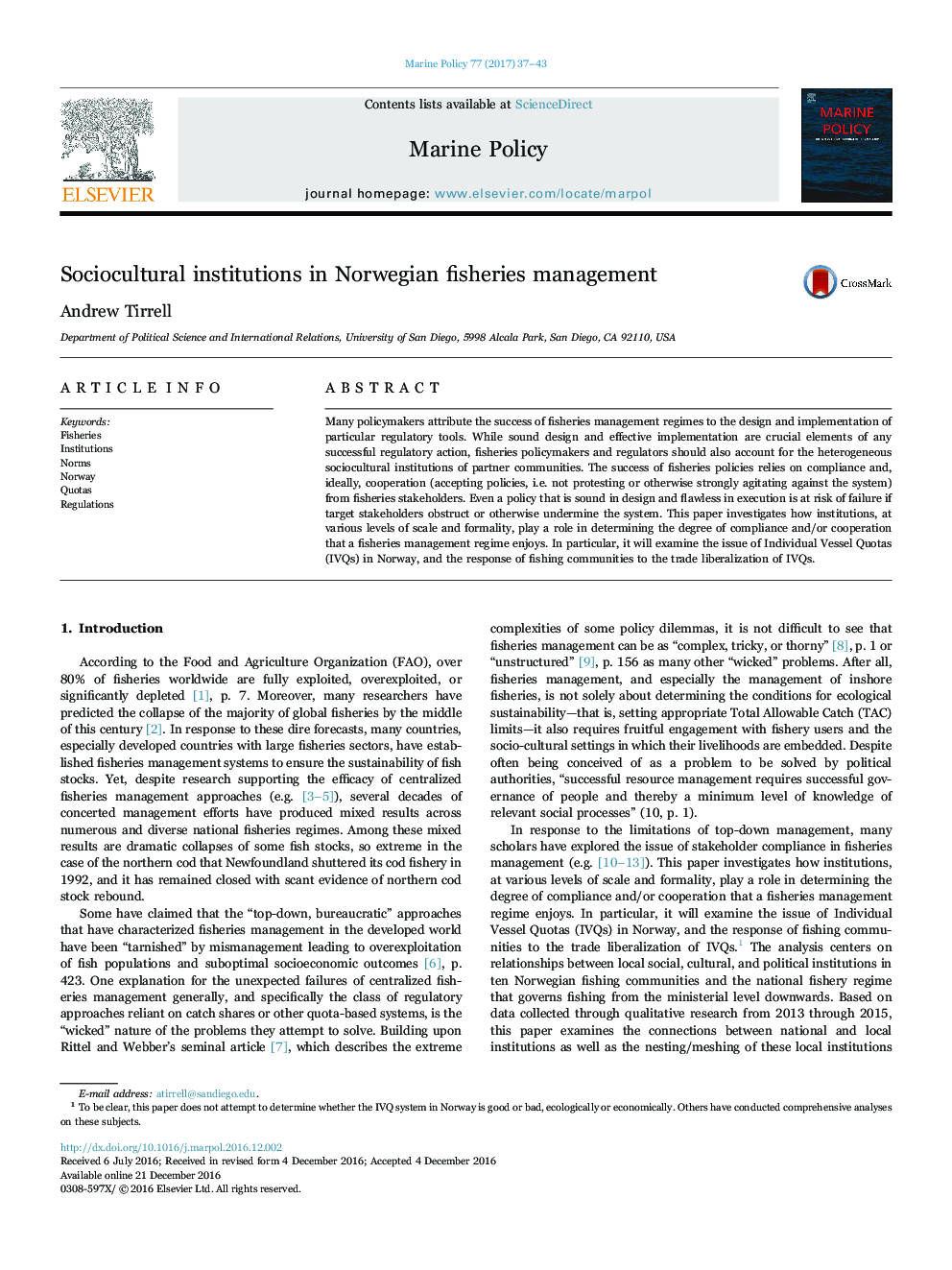| کد مقاله | کد نشریه | سال انتشار | مقاله انگلیسی | نسخه تمام متن |
|---|---|---|---|---|
| 5118225 | 1485502 | 2017 | 7 صفحه PDF | دانلود رایگان |
- Restructuring of Norway's fisheries quotas poses challenges to fishing communities.
- Fishers and other community leaders readily identify these hardships.
- Nevertheless, stakeholders cooperate with management, rarely engaging in protest.
- Sociopolitical norms about governance and citizenship may explain this cooperation.
Many policymakers attribute the success of fisheries management regimes to the design and implementation of particular regulatory tools. While sound design and effective implementation are crucial elements of any successful regulatory action, fisheries policymakers and regulators should also account for the heterogeneous sociocultural institutions of partner communities. The success of fisheries policies relies on compliance and, ideally, cooperation (accepting policies, i.e. not protesting or otherwise strongly agitating against the system) from fisheries stakeholders. Even a policy that is sound in design and flawless in execution is at risk of failure if target stakeholders obstruct or otherwise undermine the system. This paper investigates how institutions, at various levels of scale and formality, play a role in determining the degree of compliance and/or cooperation that a fisheries management regime enjoys. In particular, it will examine the issue of Individual Vessel Quotas (IVQs) in Norway, and the response of fishing communities to the trade liberalization of IVQs.
Journal: Marine Policy - Volume 77, March 2017, Pages 37-43
